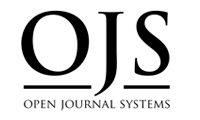Food habits and the prevalence of obesity and hypertension among the students of federal college of agriculture, Ebonyi State, Nigeria.
Main Article Content
Abstract
Objectives: The purpose of this paper was to obtain data by investigating the relationship between the student’s food habits, obesity and hypertension status.
Methodology: A sample of 238 participants (males and females) were randomly selected from 7 Departments in a descriptive cross-sectional survey. A semi-structured, validated and pre-tested self-administered questionnaire was used to generate data on socio demographic, food dietary, food frequency and anthropometric characteristics (BMI and blood pressure).
Results
The study showed that 35.30% were resident in the hostel, 35.7% were ≥28 years of age, 41.2% of their parents had secondary education, while 31.9% of them earned pocket money of N30001 -N40000 on monthly basis. About 37.4% ate three times daily, 41.2% ate depending on where they are, 42.4% preferred eating their foods boiled, where 26.2% preferred fried foods. The respondents (34.9%) ate their lunch with friends. It was generally seen that a low percentage of them consumed alcohol beverages, beer was leading (29%) among all the listed alcoholic drinks. Noodles and bread were consumed more (50.0% and 43.2%), bambara groundnuts (okpa) (43.70%) and beans (30.25%) consumption. Yam and garri/fufu had 42.44% and 33.61% consumption respectively. Beef and frozen fish (52.52% and 48.32%). Water leaf and onions (53.78% and 51.68% respectively). Over half of the consumers in fruits had other fruits not listed (66.81%) while Plums had 51.68% consumption. Groundnuts (46.64%) and tigernuts (39.08%). Stimulating drinks and alcoholic drinks (39.92% and 32.77% respectively). Honey and sugar had low (26.89% and 20.19%) consumption among sweeteners. Biscuits and tapioca among snacks (51.26% and 42.89% respectively). Fried yam and chin-chin ((39.08% and 33.19% respectively). Over half of the percentage had normal BMI (66.8%) (18.5-25.5 kg/m2) where about half (54.8%) of the respondents had normal blood pressure (<120/<80 mmHg) followed by prehypertension (41.4%) (120-139.9/80-90mmHg).
Conclusion: There was no high negative impact of food consumption on the BMI and blood pressure of the students. Therefore, it could be deduced that the students feeding habits did not affect both their BMI and blood pressure.
Article Details

This work is licensed under a Creative Commons Attribution-NonCommercial-ShareAlike 4.0 International License.



